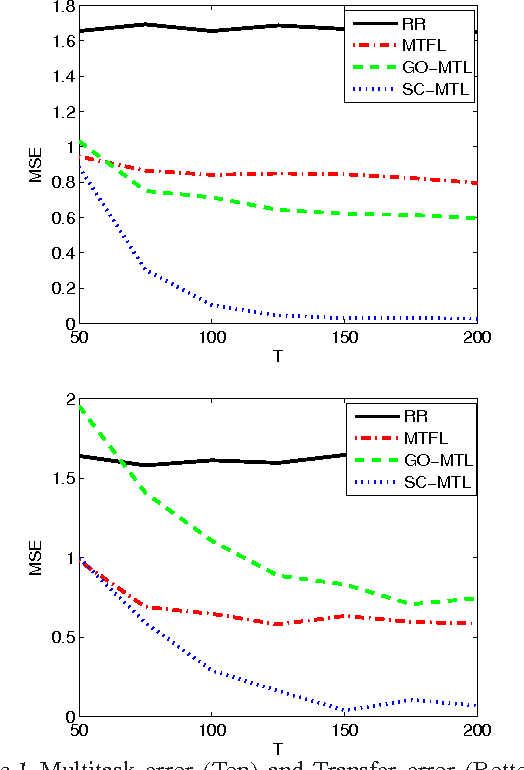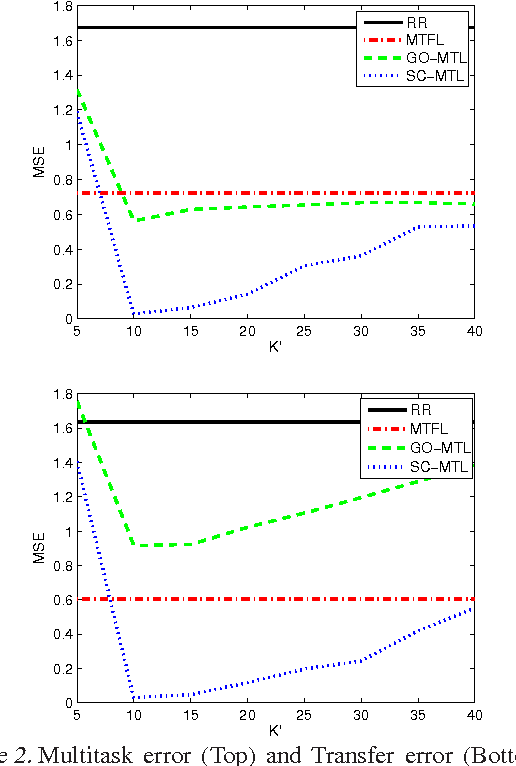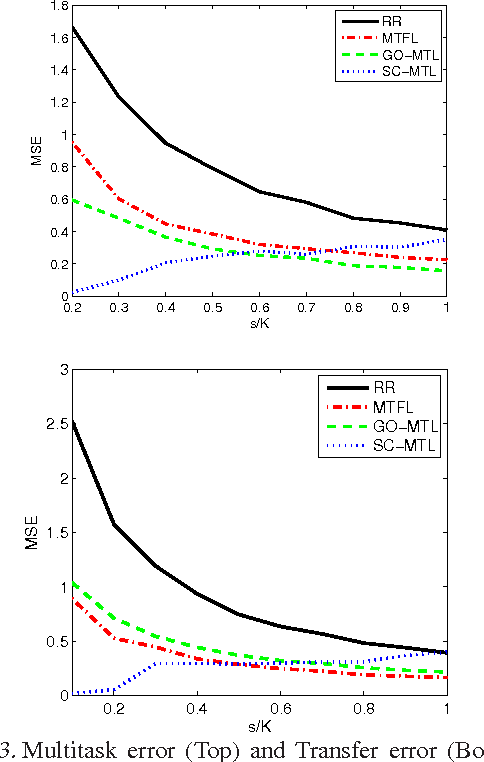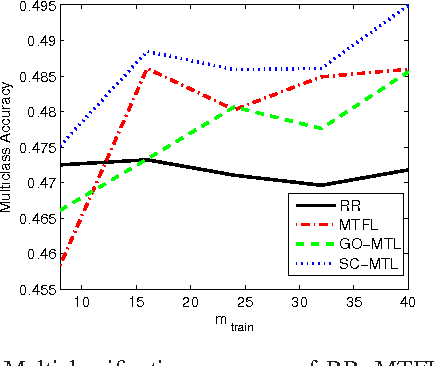Sparse coding for multitask and transfer learning
Paper and Code
Jun 16, 2014



We investigate the use of sparse coding and dictionary learning in the context of multitask and transfer learning. The central assumption of our learning method is that the tasks parameters are well approximated by sparse linear combinations of the atoms of a dictionary on a high or infinite dimensional space. This assumption, together with the large quantity of available data in the multitask and transfer learning settings, allows a principled choice of the dictionary. We provide bounds on the generalization error of this approach, for both settings. Numerical experiments on one synthetic and two real datasets show the advantage of our method over single task learning, a previous method based on orthogonal and dense representation of the tasks and a related method learning task grouping.
 Add to Chrome
Add to Chrome Add to Firefox
Add to Firefox Add to Edge
Add to Edge